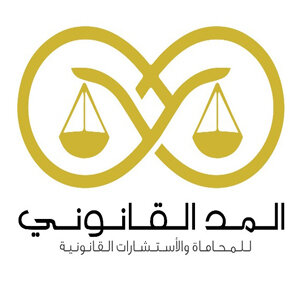Best Marriage Lawyers in Kuwait City
Share your needs with us, get contacted by law firms.
Free. Takes 2 min.
Free Guide to Hiring a Family Lawyer
List of the best lawyers in Kuwait City, Kuwait
Kuwait Marriage Legal Questions answered by Lawyers
Browse our 1 legal question about Marriage in Kuwait and read the lawyer answers, or ask your own questions for free.
- How can I marry non resident in Kuwait??
- Me and my partner had a nikah in uk but that was only religious marriage and was not register anywhere else. I have been told to come to Kuwait and marry her again properly in the court on the tourist visa and afterwards do the iqama for her as she... Read more →
-
Lawyer answer by ABDUL RAZZAQ ABDULLAH & PARTNERS LAWYER & LEGAL CONSULTANTS
Please be advised that marriage laws in Kuwait are subject to ongoing changes and have become more stringent in recent years. In your specific case, as a Kuwaiti citizen wishing to legalize a marriage with a non-resident foreign national, it...
Read full answer
About Marriage Law in Kuwait City, Kuwait:
Marriage in Kuwait City, Kuwait is governed by the Islamic Sharia Law, which is the primary source of legislation in the country. Islamic principles are applied to all aspects of marriage, including the requirements for a legal marriage, marriage contracts, and dissolution of marriage. It is important to understand the local laws and customs related to marriage to ensure a legally valid and recognized marriage in Kuwait City.
Why You May Need a Lawyer:
There are various situations where you may require legal help in matters related to marriage in Kuwait City. Some common scenarios include:
- Understanding and preparing the necessary documentation for a marriage contract
- Resolving disputes related to dowry, marriage expenses, or other financial matters
- Seeking advice on marriage dissolution, divorce, or annulment procedures
- Addressing issues of child custody, visitation rights, or financial support
- Dealing with inheritance matters related to marriage
Local Laws Overview:
In Kuwait City, there are several key aspects of local laws that are particularly relevant to marriage:
- Both parties must be Muslims or convert to Islam for the marriage to be legally recognized.
- Consent of both parties is essential for a valid marriage. A guardian's consent is required if either party is under 21 years of age.
- Marriage contracts must be registered with the Ministry of Justice to be legally valid.
- Polygamy is allowed, but subject to specific conditions and limitations.
- Divorce is permitted but requires following specific legal procedures.
- Child custody is generally awarded to the father in the event of divorce.
Frequently Asked Questions:
Q: Can a non-Muslim marry a Muslim in Kuwait City?
A: Non-Muslims cannot legally marry Muslims in Kuwait City, as both parties must be Muslims or convert to Islam.
Q: What are the requirements for a valid marriage contract in Kuwait City?
A: The requirements for a valid marriage contract include the consent of both parties, a guardian's consent if either party is under 21, and the registration of the contract with the Ministry of Justice.
Q: How can I initiate divorce proceedings in Kuwait City?
A: Divorce proceedings must be initiated through the Shari'a court. It is advisable to consult with a qualified lawyer to understand the legal procedures and requirements.
Q: What are the conditions for polygamy in Kuwait City?
A: Polygamy is allowed in Kuwait City, but it requires the husband to have the financial means to support multiple wives and treat them equally. Prior consent from the first wife may also be necessary.
Q: How is child custody determined in the event of divorce?
A: In general, child custody is awarded to the father in Kuwait City. However, the court considers the best interests of the child and may grant custody to the mother in certain circumstances.
Additional Resources:
For further information and guidance on marriage-related matters in Kuwait City, you can refer to the following resources:
- The Ministry of Justice in Kuwait
- The Fatwa and Legislation Department in Kuwait
- Islamic scholars or local mosques for advice on Islamic principles and customs related to marriage
- Legal aid organizations and law firms specializing in family law and Islamic jurisprudence
Next Steps:
If you require legal assistance or advice regarding marriage in Kuwait City, it is recommended to:
- Consult with a reputable lawyer well-versed in family law and knowledgeable about the local legal system.
- Gather all relevant documents and information related to your marriage or the issue at hand.
- Prepare a list of questions or concerns to discuss with the lawyer during your initial consultation.
- Follow the legal procedures and regulations outlined by the Shari'a court, Ministry of Justice, or relevant authorities.
Lawzana helps you find the best lawyers and law firms in Kuwait City through a curated and pre-screened list of qualified legal professionals. Our platform offers rankings and detailed profiles of attorneys and law firms, allowing you to compare based on practice areas, including Marriage, experience, and client feedback.
Each profile includes a description of the firm's areas of practice, client reviews, team members and partners, year of establishment, spoken languages, office locations, contact information, social media presence, and any published articles or resources. Most firms on our platform speak English and are experienced in both local and international legal matters.
Get a quote from top-rated law firms in Kuwait City, Kuwait — quickly, securely, and without unnecessary hassle.
Disclaimer:
The information provided on this page is for general informational purposes only and does not constitute legal advice. While we strive to ensure the accuracy and relevance of the content, legal information may change over time, and interpretations of the law can vary. You should always consult with a qualified legal professional for advice specific to your situation.
We disclaim all liability for actions taken or not taken based on the content of this page. If you believe any information is incorrect or outdated, please contact us, and we will review and update it where appropriate.














